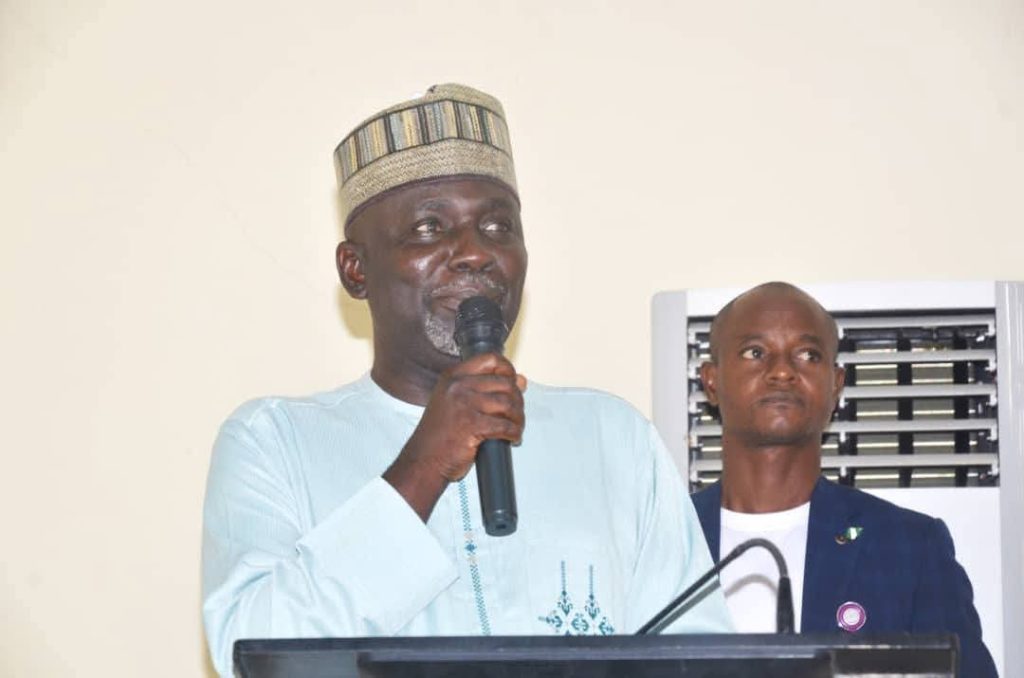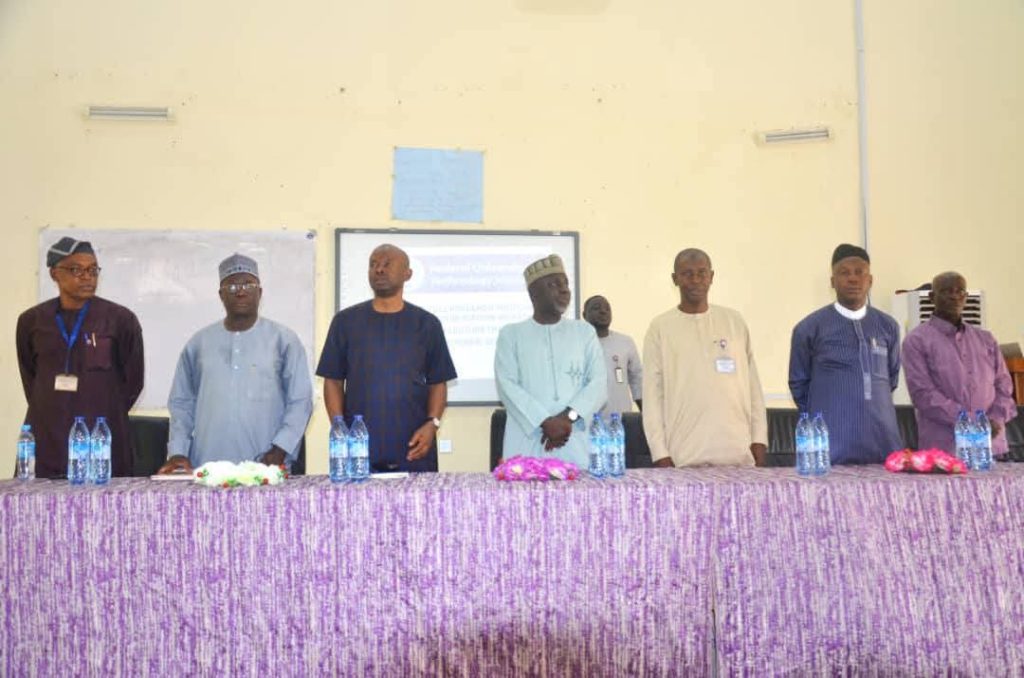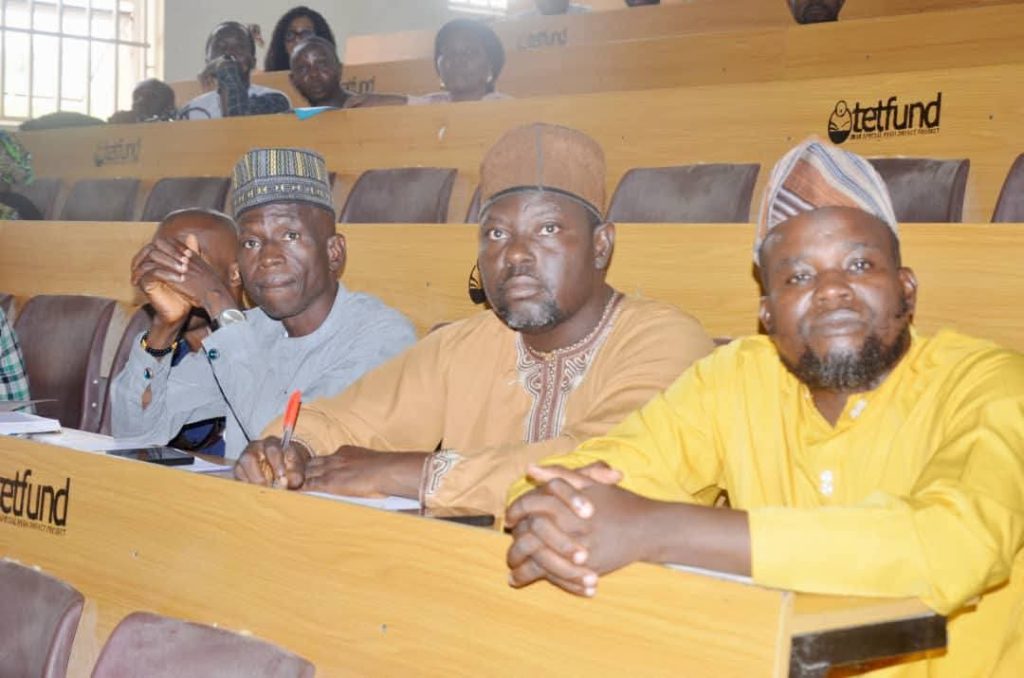By Mohammed Abubakar
“We have entered an era where tangible results speak louder than intentions. What you can create today determines how others will thrive tomorrow.”
With these words, the Vice-Chancellor of the Federal University of Technology, Minna (FUT Minna), Prof. Faruk Adamu Kuta, inaugurated the Workshop on Research Proposal Writing and Publication in High-Impact Journals, held on October 7–8, 2025, at the SICT Lecture Theatre, Main Campus.
Prof. Kuta reaffirmed FUT Minna’s unwavering commitment to research, innovation, and commercialisation pillars that not only define the University’s vision but also support Nigeria’s shift toward a knowledge based economy.
He proudly revealed that FUT Minna had been selected as the North-Central representative in a nationwide research consortium one of only six universities chosen, citing this recognition as a testament to the University’s expanding reputation in research excellence and societal impact.
Further strengthening this vision, Prof. Kuta announced that TETFund would establish a world class research laboratory at FUT Minna to empower scholars to transform ideas into market ready products, reducing import dependency and fostering national growth.
“While many can teach, it takes a distinct commitment to conduct meaningful research,” he added. “The reputation of this University is in your hands.”
Commending the leadership and research community, he encouraged postgraduate students to uphold high standards of inquiry and academic integrity.
Earlier, Prof. Chiemela Enyinnaya Chinma, Director of the Directorate for Research, Innovation and Development (DRID), noted that the workshop was designed to strengthen FUT, Minna’s research culture, enhance grant competitiveness, and raise the University’s global research profile through high-impact publications.
He emphasised that strong proposals demand originality, collaboration, and strict adherence to TETFund guidelines, noting that the National Research Fund prioritizes research that delivers innovative solutions to national and infglobal challenges.
In her presentation, Prof. (Mrs.) H.O. Akanya, represented by Prof. Taiye Adejumo, addressed the essentials of crafting compelling titles and executive summaries for proposals. She underlined the importance of clarity, creativity, and strategic relevance, and advised that titles should be concise, jargon free, and reflective of the study’s core impact.
She also emphasised that an effective executive summary should present a snapshot of the project’s focus, innovation, goals, methodology, and outcomes encouraging researchers to tailor these elements for clarity and reviewer engagement.
In a subsequent session, Prof. Evans Egwim highlighted the architecture of a successful research proposal. He stressed the need for comprehensive literature reviews that identify knowledge gaps, along with ethical, well-structured methodologies and activity plans linked to measurable outcomes.
Prof. Abdulsalami Kovo, represented by Prof. Jimoh Oladejo Tijani, provided detailed guidance on applying for the 2025 NRF grants, outlining evaluation metrics such as research output, capacity building, and societal impact.
He emphasised the importance of project planning tools like Gantt Charts and KPIs, and reiterated compliance with ethical and financial standards including transparent budgeting and dissemination practices.
Prof. Tijani also discussed the structure of effective research teams, insisting that the Principal Investigator (PI) must be at least a Senior Lecturer and lead a diverse, interdisciplinary team with mentoring capacity.
Drawing on successful examples from nanotechnology and environmental engineering, he illustrated how strategic collaboration can lead to international recognition and funding.
In his session on budget planning, Prof. Abdulkareem Ambali Saka stressed the need for responsible grant management. He advised that budgets must align with funding ceilings and should allocate no more than 20% for personnel, 25% for equipment, 5% for travel, and 3% for dissemination.
Prof. Lanre Olatomiwa closed the technical sessions by reviewing the NRF Full Proposal Scoring Template, urging participants to align their work with SMART objectives, TETFund’s research themes, and institutional capacities.
The technical session was chaired by Prof. (Mrs.) H.O. Akanya, Chairperson of the Research Proposal Appraisal Committee (RPAC), who was once again ably represented by Prof. Taiye Adejumo.
In her remarks, Prof. Akanya expressed sincere appreciation to the Vice-Chancellor for his unwavering support of research excellence and capacity building. She commended the Directorate of Research, Innovation, and Development (DRID) for organizing a timely and impactful workshop that equipped scholars with essential tools for producing competitive research and high-quality scholarly output. She concluded by expressing confidence that the knowledge and insights gained would lead to the development of impactful research proposals and publications, ultimately enhancing FUT Minna’s reputation both nationally and internationally.
Delivering the closing remarks, Prof. Chinma extended gratitude to the resource persons for their enriching presentations and to the participants for their active involvement.
He informed attendees that the second day of the workshop would focus on Publishing Research Papers in High-Impact Journals, and encouraged PhD students to make a concerted effort to participate in the session
Photo Credit Elijah Yisa


